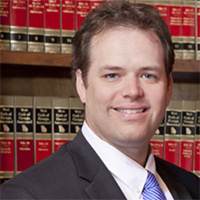Avera Criminal Lawyer, Georgia
Sponsored Law Firm
-
 x
x

Click For More Info:
-
Wiseman Blackburn, LLC
1510 Drayton St Savannah, GA 31401» view mapCriminal Defense Dedicated To You
Wiseman Blackburn serves Atlanta, GA with Criminal and Divorce and Family matters.
800-622-5610
Richard Hays Goolsby
✓ VERIFIEDDivorce & Family Law, Criminal, Wills & Probate, Accident & Injury
Richard Hays Goolsby, Jr. currently practices law in both Georgia and South Carolina and is a proud member of both bar associations. Richard, Jr. foun... (more)
Joseph T. Rhodes
✓ VERIFIEDPersonal Injury, Family Law, Federal Appellate Practice, Criminal, Mass Torts
Joseph T. Rhodes was raised in Columbia County, GA and graduated from Lakeside High School and then attended and graduated from the University of Geor... (more)
FREE CONSULTATION
CONTACTLauminnia F. Nivens
Bankruptcy, Criminal, Social Security, Workers' Compensation
Status: In Good Standing Licensed: 31 Years
Treza Latrail Edwards
Lawsuit & Dispute, Wills, Trusts, Criminal
Status: In Good Standing Licensed: 18 Years
Gary L Luke
Federal Trial Practice, Criminal, Bankruptcy, Medical Malpractice
Status: In Good Standing Licensed: 33 Years
Roger R. Claridge
Motor Vehicle, Felony, Criminal, Accident & Injury
Status: In Good Standing Licensed: 20 Years
 Jonathan Hunt Savannah, GA
Jonathan Hunt Savannah, GA


